Iran’s Sanctions and “TRUST WATCHES” Brand Case
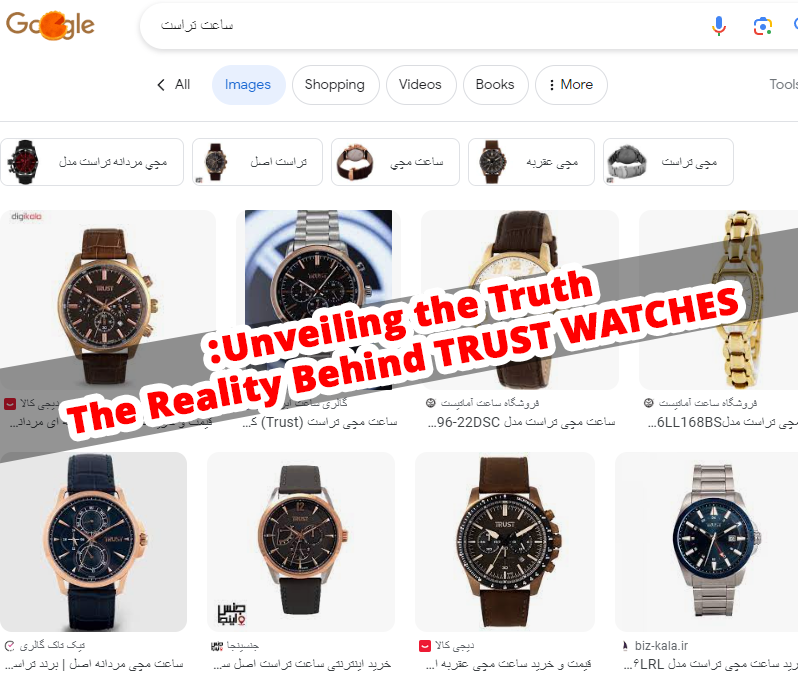
Economic sanctions have long been a tool used in international diplomacy, often with wide-ranging effects on the target nation’s economy and society. Iran, facing extensive sanctions for years, provides a stark example of how these restrictions can reshape domestic markets and consumer behavior. The emergence of counterfeit brands like “Trust” in the Iranian market is a direct consequence of these sanctions, reflecting both the ingenuity and the desperation of businesses operating under such constraints.
The Rise of Counterfeit Brands
In this vacuum, counterfeit brands have flourished. Unable to import genuine products from Europe and the U.S., some Iranian entrepreneurs have resorted to creating counterfeit versions of popular brands. The case of the “Trust” brand, purportedly a high-end European watchmaker, is illustrative. Investigations have revealed that “Trust” is not a legitimate Swiss brand, but a fabrication likely intended to capitalize on the perceived value of European goods.
The “Trust” Brand: A Case Study
The “Trust” brand emerged in Iran’s market as a supposed manufacturer of luxury Swiss watches. Its sophisticated marketing campaign and a seemingly official website made it appear credible. However, an in-depth investigation revealed a web of deceit:
- Web Presence and Misleading Information: The brand maintained an online presence through the website trustonline[.]ir, which projected it as a legitimate watch company. This site claimed that “Trust” was represented in Iran by “ژرف اعتماد پارت” (Deep Trust Part), accessible through japartgroup[.]com.
- The Swiss Connection: The brand was linked to a Swiss website, trustwatches[.]com, which provided an address: Trust AG, Sihlbruggstrasse 105, CH 6340 Baar, Switzerland. This address, upon investigation, led not to a watch manufacturer, but to a financial services firm, Swiss Equity Finance & Trust AG (also known as “Trust Group AG”).
- Domain Registrations and Ownership: Domain ownership revealed a telling connection. The domains for both “trustonline.ir” and “trustwatches.com” were traced back to an individual in Iran – “Majid Javanmardi”. This link indicated that the operations, including the website hosting and domain registration, were centrally controlled from within Iran, not Switzerland.
- Company Structure and Operations: Further probing into “ژرف اعتماد پارت” led to the discovery of its parent company, “گروه ژاپارت” (Japart Group), managed by the same Majid Javanmardi. This entity was found to be the orchestrator behind the “Trust” brand’s operations, suggesting a deliberate attempt to mislead consumers about the brand’s origin and authenticity.
- Consumer Deception: The illusion of a Swiss luxury brand was carefully crafted to appeal to Iranian consumers seeking high-quality, prestigious products. The deceptive practices extended to creating a false narrative about the brand’s European origins and its supposed standards of quality.
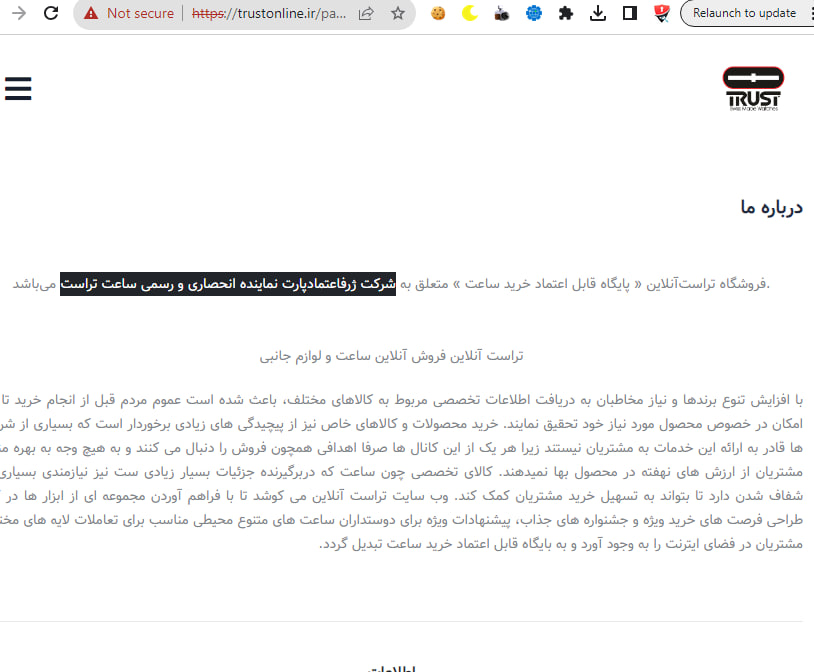
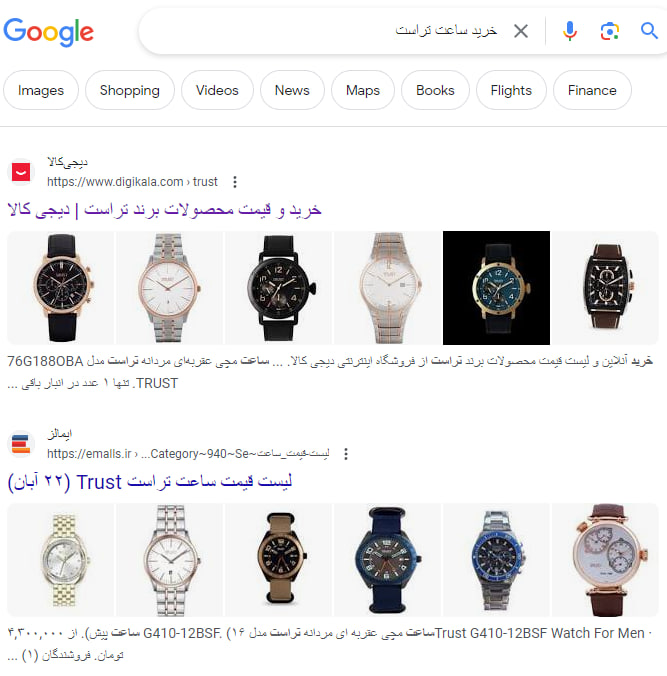
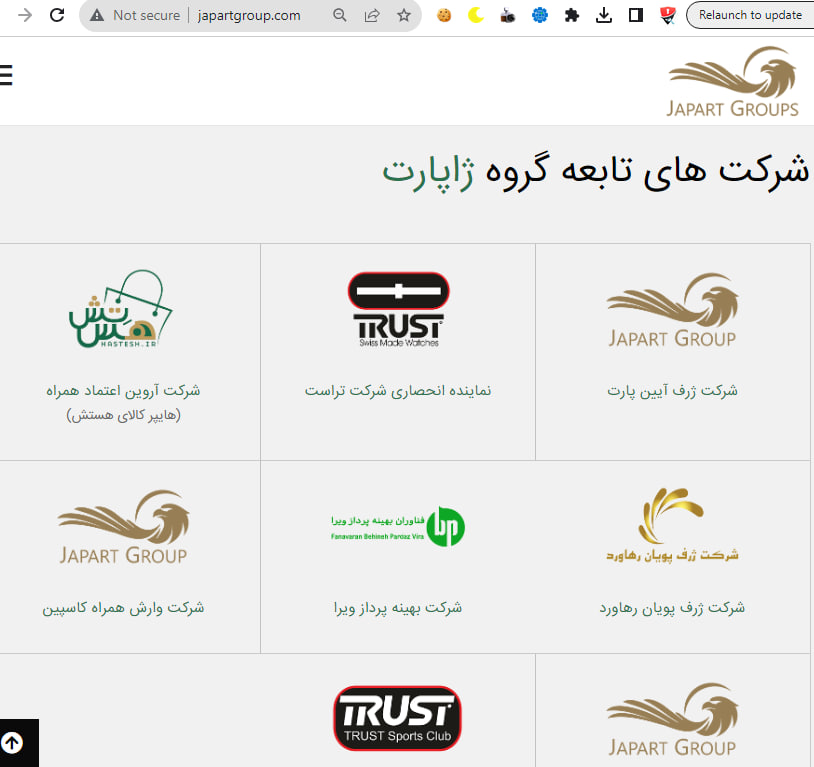
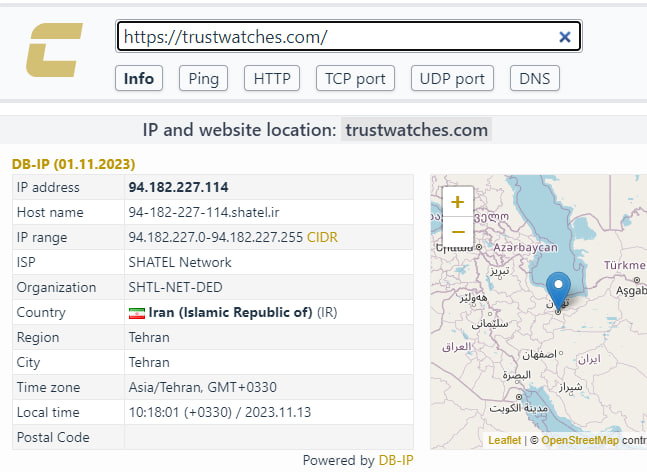
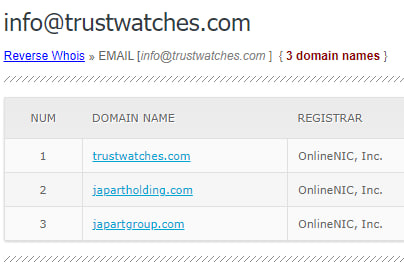
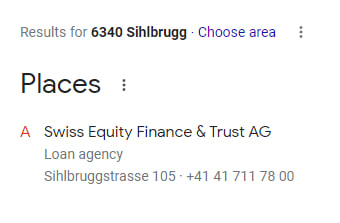
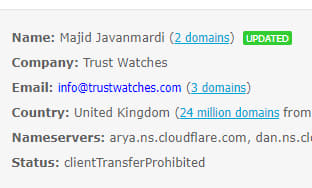
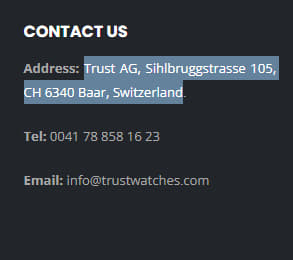
Consumer Deception and Market Dynamics
For Iranian consumers, discerning the authenticity of brands like “Trust” is challenging. Sanctions have not only limited access to genuine products but also to reliable information. Consequently, many consumers, desperate for quality and prestige in their purchases, are easily misled by such counterfeit brands. This situation is exacerbated by the limited legal recourse available to them in cases of fraud.
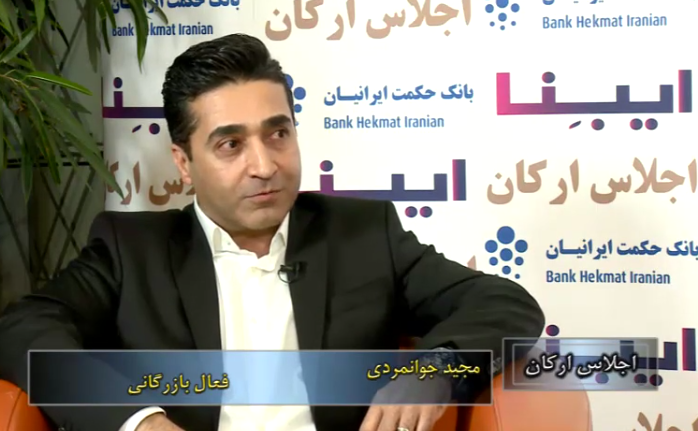
Conclusion
The “TRUST WATCHES” brand case in Iran is a telling example of how economic sanctions can inadvertently create fertile ground for fraudulent activities. Fraudsters take advantage of the restricted market conditions to profit significantly from selling counterfeit products. They exploit the gap created by sanctions, which prevent legitimate and high-quality products from entering the market, and fill it with fake alternatives.
Unfortunately, this pattern extends beyond luxury goods like watches to more critical sectors, including health products. There are instances where products are falsely marketed as branches of European companies, misleading consumers about their quality and origin. This deception is not just a matter of financial fraud; it can have serious implications for consumer health and safety.
In the shadow of sanctions, such deceptive practices have become increasingly common, as the usual channels of business and trade are disrupted. The case of “TRUST WATCHES” is just one manifestation of a broader trend where sanctions, while politically motivated, end up impacting the everyday lives of people, often in harmful ways. It underscores the need for more stringent measures to combat fraud and protect consumers, especially in markets that are isolated due to international sanctions.